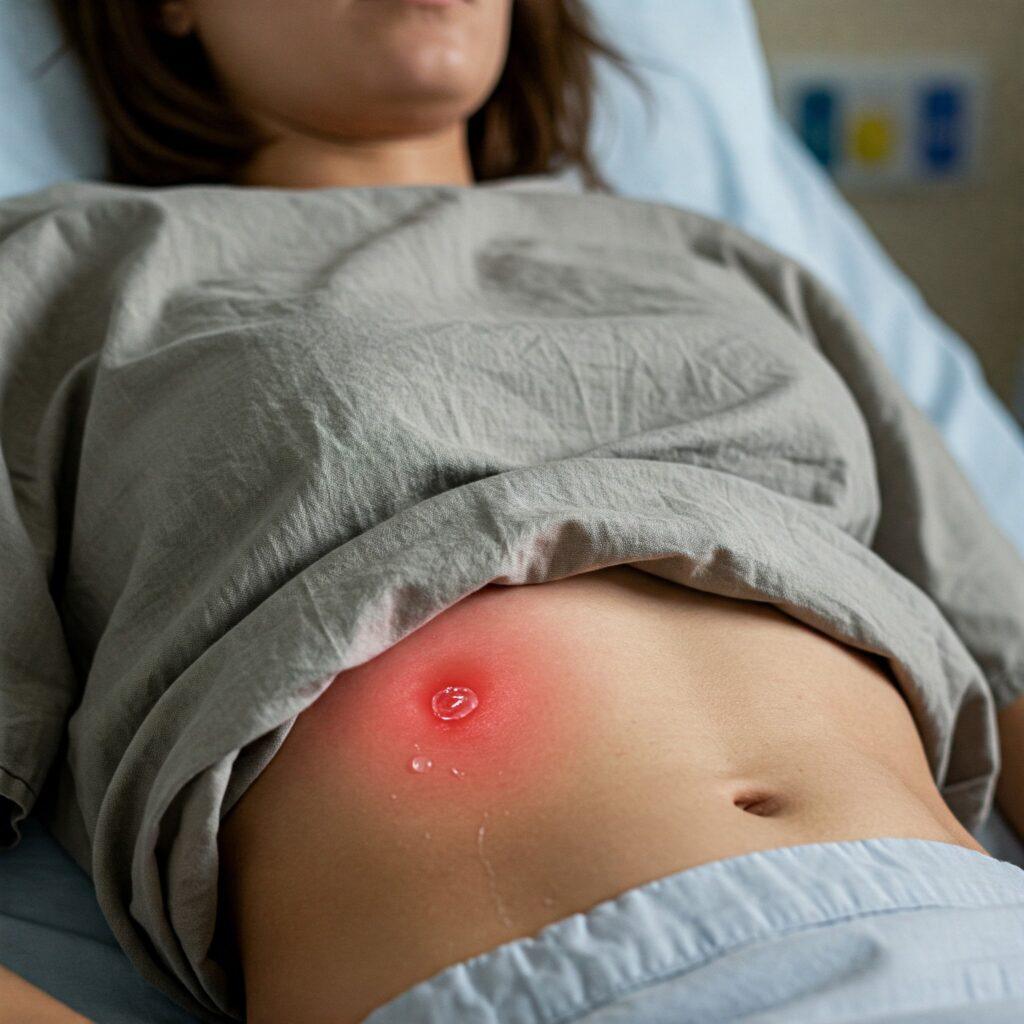Introduction
Surgery is a major medical procedure, and proper post-operative care is crucial for a smooth recovery. One of the most serious complications after surgery is an infection at the incision site. If left untreated, a surgical site infection (SSI) can lead to severe health risks, including sepsis. This guide will help you recognize the early signs of infection after surgery, understand risk factors, and learn when to seek medical help.

Read More Blogs: SurGide Blogs
How Common Are Infections After Surgery?
According to the CDC, only 1% to 3% of patients develop a surgical site infection (SSI). However, SSIs account for 20% of all hospital-acquired infections, making them a significant concern.
Types of Surgical Site Infections (SSIs)
- Superficial Incisional SSI – Affects only the skin around the incision.
- Deep Incisional SSI – Infects deeper tissues and muscles near the wound.
- Organ/Space SSI – Occurs in internal organs or body cavities.
Key Signs of Infection After Surgery
Watch for these warning signs at your incision site:
1. Unusual Discharge or Pus
- Thick, cloudy, white, or yellow discharge.
- Pus with a foul smell.
2. Increased Redness and Swelling
- Spreading redness beyond the incision.
- Swelling that worsens after the first few days.
3. Warmth Around the Wound
- The skin feels hotter than surrounding areas.
4. Fever (Over 101°F or 38.3°C)
- Chills and sweating may accompany fever.
5. Worsening Pain or Tenderness
- Pain that increases instead of improving.
6. Delayed Healing
- The incision reopens, gets deeper, or doesn’t scab over.
If you notice any of these symptoms, contact your surgeon immediately.
Who Is at Higher Risk for Post-Surgery Infections?
Some patients are more prone to infections due to:
- Age (65+)
- Diabetes (poorly controlled blood sugar)
- Obesity
- Smoking
- Weakened immune system
- Long or emergency surgeries
How to Prevent Infections After Surgery
1. Follow Pre-Surgery Instructions
- Manage chronic conditions like diabetes.
- Quit smoking at least two weeks before surgery.
2. Proper Wound Care at Home
- Wash hands before touching the incision.
- Keep the area dry and clean (follow doctor’s instructions).
- Avoid soaking in baths or pools until fully healed.
3. Take Prescribed Antibiotics (If Given)
- Some patients receive preventive antibiotics before surgery.
- Do not overuse antibiotics unless prescribed.
4. Monitor for Early Warning Signs
- Check the incision daily for changes.
When to Call a Doctor
Seek immediate medical attention if you experience:
✔ Fever above 101°F (38.3°C)
✔ Increasing pain, redness, or swelling
✔ Pus or foul-smelling discharge
✔ Signs of sepsis (confusion, rapid heartbeat, extreme fatigue)
Early treatment can prevent serious complications.
Final Thoughts
While infections after surgery are rare, knowing the warning signs can help you act quickly. Proper wound care, hygiene, and monitoring are key to a safe recovery.
For more information, visit:
- CDC Guidelines on Surgical Site Infections
- World Health Organization (WHO) on Post-Surgical Care
- Wikipedia – Surgical Site Infections
If you suspect an infection, contact your healthcare provider immediately for proper treatment.

